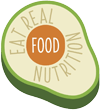Why We Should Eat Real Food
Introduction
As a nutritionist, I understand the constant search for the latest diet trend and the desire to find something new. However, this approach often leads to inefficiency and disappointment. The truth is, when it comes to our nutrition, simplicity is key. That’s why as a nutritionist, I advocate for the importance of eating real food. In this blog post, I will highlight the significance of real food in achieving optimal health and provide you with practical tips on how to incorporate real food into your life, starting today.

The Guidance of a Nutritionist
As a nutritionist, my goal is to help you navigate the vast realm of nutrition and make informed choices by consulting, educating and coaching. I understand that the diet industry thrives on the constant need for change, but my role is to simplify the process and focus on what truly matters: nourishing your body with real food. Set up a ,complimentary consultation to learn how I can assist you.
Tip 1: Prioritize Real Foods for Optimal Nutrition
Real foods are minimally processed and packed with essential nutrients, supporting your overall health. Real Foods can be healing. Here is a ,comprehensive Master Class by Dr. Mark Hyman where he cites many powerful functions of real food as medicine.
To incorporate more whole foods into your meals:
Fresh Fruits and Vegetables: Include a variety to maximize essential nutrients, vitamins, minerals, antioxidants, and fiber. If you are local, shop here.
Whole Grains: Opt for brown rice, quinoa, oats, and whole wheat bread instead of refined grains. They provide complex carbohydrates, fiber, B vitamins, and minerals.
Lean Proteins: Choose poultry, fish, legumes, tofu, and low-fat dairy for amino acids, vitamins, and minerals.
Healthy Fats: Include avocados, nuts, seeds, olive oil, and fatty fish for brain health, hormone production, and nutrient absorption.
Here’s a recipe that incorporates healthy fat in the most delicious of ways by also utilizing chocolate. ,Chocolate protein fudge is all that chocolate fudge promises.
Real foods offer more nutrients and less added sugars, unhealthy fats, and sodium. They also provide dietary fiber, aid in digestion, weight management, and heart health.
Incorporating real foods is simple. Gradually replace processed foods, plan meals around fruits, vegetables, whole grains, and lean proteins, and explore new recipes that highlight their natural flavors and textures. ,This recipe might help with real food endeavors.

Tip 2: Achieving Macronutrient Balance for Optimal Health
Macronutrients, including protein, carbohydrates, and fats, are essential for our health. Striking a balance between these nutrients in each meal is key to promoting well-being.
Protein: Supports muscle repair and growth, immune function, and hormone production. Choose lean sources like poultry, fish, eggs, legumes, tofu, and tempeh. Here’s some ,education on protein.
Carbohydrates: Provide energy, fiber, vitamins, and minerals. Opt for complex carbohydrates found in whole grains, fruits, vegetables, and legumes.
Healthy Fats: Essential for brain health, hormone regulation, and nutrient absorption. Include avocados, nuts, seeds, olive oil, fatty fish, and nut butters.
Tips for achieving macronutrient balance:
Plan Balanced Meals: Include all three macronutrients in your meals. For example, pair grilled chicken with quinoa and steamed vegetables.
Snack Smartly: Combine macronutrients in snacks, such as nuts with fruit.
Listen to Your Body: Adjust proportions to find what works best for you.

Tip 3: Maximizing Micronutrient Intake for Optimal Well-Being
Micronutrients, such as vitamins and minerals, are vital for our well-being. Include the following real food sources in your diet:
Vitamins:
Vitamin A: Sweet potatoes, carrots, spinach, kale, and bell peppers. A ,spinach recipe to snack on!
B Vitamins: Whole grains, legumes, leafy greens, nuts, seeds, and animal products (if consumed).
Vitamin C: Citrus fruits, berries, kiwi, bell peppers, broccoli, and leafy greens.
Vitamin D: Fatty fish, fortified dairy products, and egg yolks.
Vitamin E: Nuts, seeds, vegetable oils, spinach, and broccoli.
Vitamin K: Leafy greens, broccoli, Brussels sprouts, and fermented foods.
Minerals:
Magnesium: Dark leafy greens, nuts, seeds, legumes, and whole grains. Many of us need to supplement magnesium for sleep, stress, cellular health and muscle growth and recovery. ,This is one of my best supplement recommendations.
Iron: Lean meats, seafood, beans, lentils, spinach, and fortified cereals.
Calcium: Dairy products and leafy greens.
Zinc: Oysters, red meat, poultry, beans, nuts, and seeds.
To maximize micronutrient intake, consume a variety of colorful fruits and vegetables, both raw and cooked.
Consult a nutritionist for personalized advice, as individual needs may vary. Prioritize real food sources to ensure a diverse intake of essential vitamins and minerals for optimal well-being.
(green leafy vegetables contain calcium and magnesium)

Tip 4: Minimizing Processed Foods for Optimal Health
To improve your overall health, it’s important to minimize your intake of processed foods. Here’s why and how to do it:
Lack of Essential Nutrients: Processing removes important nutrients found in whole foods. Choose whole alternatives like whole grains for a nutrient-dense diet.
Excessive Added Sugars: Processed foods are high in sugar, linked to obesity and chronic diseases. Opt for naturally sweet whole foods like fruits.
Artificial Additives: Processed foods contain artificial flavors, colors, and preservatives. Whole foods help you avoid potentially harmful additives.
Unhealthy Fats and Sodium: Processed foods often have unhealthy fats and high sodium. Real foods let you control your fat and sodium intake.
Long-Term Health Consequences: Consistently eating processed foods increases the risk of chronic diseases. Prioritize real foods for better health.
Tips to minimize processed foods:
Cook at home using real ingredients.
Read labels and choose products with minimal added sugars, unhealthy fats, and artificial additives.
Opt for whole snacks like fruits, vegetables, nuts, and seeds.
Plan meals ahead to have whole food options available.
Practice moderation when indulging in processed foods.
As a nutritionist, I recommend prioritizing real, unprocessed alternatives for improved nutrition and long-term health.
Tip 5: Embrace Local Farmers’ Markets for Fresh, Sustainable Food
Support local farmers and discover the abundance of fresh produce at farmers’ markets. Here is a link to the ,NFMD, National Farmers’ Market Directory.
Here’s why shopping your local farmers’ market is beneficial:
Freshness and Seasonality: Farmers’ markets offer freshly harvested, ripe produce with enhanced flavor and quality. If you buy your produce closer to the time it was picked, you benefit from a higher nutrient content. Furthermore, smaller farmers aren’t overusing and over depleting their soils…again, more nutrients for Y-O-U.
Sustainable and Organic Practices: Many vendors prioritize sustainable and organic farming methods, reducing harmful chemicals. Ask your farmer if they use pesticides. They may not have the funds to apply for the USDA Organic seal but they may also refrain from using chemicals on their crops.
Nutritional Variety: Explore a diverse range of nutritious fruits, vegetables, herbs, and specialty products.
Connection with Food and Community: Interact with farmers, learn about their practices, and connect with like-minded individuals.
Tips for Farmers’ Market Exploration:
Research ,local markets and their offerings.
Embrace seasonal produce for flavor, nutrition, and affordability.
Engage with farmers to learn about their practices and recommendations.
Bring reusable bags and cash for a sustainable shopping experience.
Explore every aisle to discover new foods and varieties.
Supporting local farmers’ markets benefits your health, the environment, and the community.
Enjoy the freshness and sustainability of real food while connecting with those who cultivate it.

Tip 6: Seek Professional Guidance for Personalized Nutrition Support
To optimize your nutrition and well-being, consult with a qualified ,nutritionist. Here’s why it’s beneficial:
Individualized Approach: Professionals tailor advice to your unique needs, considering your health, goals, and lifestyle.
Expert Knowledge: Professionals stay updated on the latest research, providing evidence-based advice you can trust.
Address Specific Concerns: Professionals help manage allergies, conditions, and specific health concerns through real food choices.
Nutritional Education: Gain knowledge and tools to make informed decisions about your diet and overall health.
Accountability and Support: Nutritionists provide ongoing guidance, monitoring progress, and offering encouragement.
How to Seek Professional Guidance:
Schedule an Appointment: Arrange an ,initial consultation to share your health, lifestyle, and goals.
Communicate Openly: Be honest about your concerns, preferences, and challenges.
Follow Recommendations: Implement the guidance provided and seek clarification when needed.
Seeking professional guidance empowers you to make informed choices and achieve optimal nutrition and well-being on your real food journey.
Conclusion
As a nutritionist, I firmly believe that embracing real food is crucial for our well-being. By following these practical tips, you can start incorporating real food into your life today. Remember, having a ,nutritionist on your team can provide invaluable support on your journey towards optimal health.



